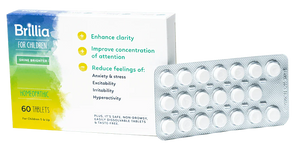by Aprel Phelps Downey
You make a last-minute check of the dance bag for essential items while telling your daughter it’s time to head out the door. You expect to hear “OK, Mom—coming” but instead hear “I’m not going.” A quick glance at your watch indicates that there isn’t time for a debate right now. Hoping for a quick resolution to the issue, you walk into your daughter’s room.
You find her sitting on her bed, half dressed for dance class. She looks at you and restates her earlier response of not wanting to go today. A million questions come to mind, starting with the thought that she may no longer be comfortable with the social aspect of dance class. The two of you sit in silence for a minute until she quietly says that she doesn’t feel like she’s good at dance anymore.
That response catches you off guard, as dance is her one true passion in life. She continues by telling you that she’s worried about her performance in the upcoming recital, how she’ll do on stage with her friends and what the audience will think of her dancing ability. You start to think that performance anxiety may be stealing the spotlight.
What Is Performance Anxiety?
Anxiety takes shape when you begin to feel uncomfortable about something that is about to take place. You begin to sweat, feel your heart pounding and notice your breathing pattern becoming faster. Every bad outcome runs through your mind, making you create hypothetical “what-if” scenarios that seemingly never end. With all of this anxiety coursing through your body, it’s difficult to focus on even the simplest task.
Performance anxiety impacts how you perceive your performance in a presentation, meeting or other tasks will play out. For your child, in this scenario, her thought process fixates on how she will perform during a specific task. She may begin to feel butterflies in her stomach, develop a headache or stomach ache, break out in a sweat, get a shaky feeling in her body or believe she’s going to pass out. The anxiety consumes her to the point where she no longer feels as if the performance is possible.
Identifying Performance Anxiety
Your child may keep her feelings of performance anxiety to herself. She may also be unaware that what she’s feeling is anxiety. For that reason, knowing how to identify signs of performance anxiety in your child without her saying a word is a beneficial parenting tool. You can start with a quiet observation of her behavior, taking note of things like unexplained irritability, restlessness or trouble sleeping. These behaviors can appear alongside not feeling good or having an injury that she thinks will keep her out of an upcoming activity.
All of these signs can point to the possibility that performance anxiety is taking shape with your child. It can be the result of her feeling the pressure of being on a more competitive team than in previous years. Her level of activity may require a solo performance, which makes her feel uncomfortable. She may be feeling the academic pressure of making the grades that will let her join a new club at school. One thing is for certain—she’s facing a new set of expectations, and that is producing those anxious feelings.
How to Overcome Performance Anxiety
As parents, we may wish for the ability to wave a magic wand and make her uncomfortable situation disappear. However, working to avoid the situation weakens her resilience to face similar situations in the future. What you can do is give her practical tools that can help her feel more comfortable in her own skin.
Start by showing her the importance of practicing mindfulness when those anxious feelings consume her. Activities like yoga or other stretching movements are a beneficial way to help her slow down and focus on the things she enjoys about the activity, rather than on the performance itself. Those anxious feelings will have less control over her, which gives her a confidence boost to rock the task at hand.
You can help by sharing a personal experience of performance anxiety and how you made it through the experience. Help her brainstorm ideas that can make an upcoming performance or activity less nerve-wracking. Reassure her that everyone feels anxious about performing a task, which will help her see that what she’s feeling is normal. Empathize with her situation by listening without being critical or trying to find a solution for her. Let her know that you are proud of her and that you love her, regardless of how her performance goes.
Be open to the possibility of giving your child Brillia, which works to reduce feeling of anxiety in your child without exposing her to the harsh ingredients found in pharmaceutical products. A homeopathic product, such as this, gives your child the chance to manage those anxious feelings and face that performance situation with confidence.
When anxiety does try to step in and keep her from an activity, like dance class, spend a few minutes talking with her. Your goal is to reach a solution that helps her handle that anxiety without feeling as if she’s letting you down. Sometimes, knowing that she is loved for who she is and not for what she does or how she plays the game on the field is all she needs to kick performance anxiety to the curb for good.
Aprel Phelps Downey is a brand storyteller, author, and writer specializing in small-business marketing services. She holds a bachelor of science in marketing from the University of South Florida. She resides in Eastern Tennessee with her husband and daughter.
References:
1. https://www.verywellfamily.com/help-your-child-cope-with-sports-anxiety-1257034
2. https://kidshealth.org/en/kids/test-anxiety.html
3. https://mauifamilymagazine.com/overcoming-performance-anxiety/







